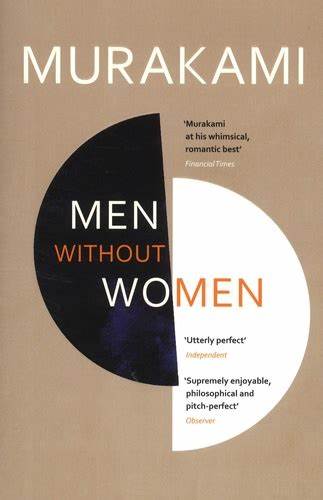October 2024 - Men Without Women

Men Without Women by Haruki Murakami
10 Bookgroup members and 1 visiting member gathered on the morning of October 25th, at Charlotte’s home, to discuss Haruki Murakami’s “Men Without Women”; a poignant collection of short stories that delve into themes of loneliness, relationships, and the emotional landscapes of men. Many felt that Murakami’s unique blend of the surreal made the book enjoyable.
The majority of members liked the book, while a few did not appreciate Murakami’s writing style.
“Drive My Car”: Kafuku’s journey of coping with his wife’s death and the conversations he has with his driver highlighted the complexities of grief and communication.
“Yesterday”: As we do not know the exact answers to what Murakami intended us to feel, we speculated a lot about why the characters in the book behaved in certain ways. It was very interesting to listen to how the members interpreted the story.
“Scheherazade”: This story sparked a lively conversation about storytelling as a form of connection. We explored how the protagonist’s confinement leads him to form a bond with his visitor through shared narratives, illustrating the idea that stories can fill emotional voids. Some members really enjoyed the storytelling within the story; the theme was definitely interesting.
“An Independent Organ”: This story evoked a mix of emotions, with some finding it unsettling and upsetting. The egotistical protagonist and his tragic ending did not gain much pity from the members, yet some preferred this story above the others.
Character Dynamics: We talked about how Murakami portrays masculinity and vulnerability. The men in these stories often feel lost and are forced to confront their feelings of inadequacy.
Writing Style: Many members agreed that Murakami’s prose is both beautiful and haunting. His ability to weave surreal elements into everyday life created a dreamlike quality that kept us engaged. Unfortunately, some members mentioned that they did not like the subtlety of his writing, and it was interesting to hear what others felt about the writing style.
Overall Impact: As we wrapped up, we reflected on how “Men Without Women” serves as a meditation on the human experience. Murakami captures the bittersweet essence of relationships, illustrating how absence can leave deep emotional scars. Many of us felt that the stories lingered in our minds, prompting us to think about our own connections and the complexities of love and life.
Closing Thoughts: The discussion concluded with a shared appreciation for Murakami’s ability to evoke such profound emotions through his storytelling. We left with a sense of having fully explored the book through our questions and discussions.
Jung Min Lee – Jay
